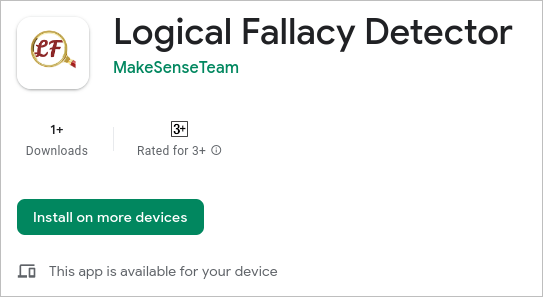Logical Fallacy Detector App Fixed
News
This is just a short message with quick update.
We have just updated the app in the Android Play Store: Logical Fallacy Detector App with the bug fixes.
Thank you all who sent us emails with bugreports, they really helped.

This screenshot of PlayStore page is really old. This app has many more downloads…
Feedback
Your opinion is very important to us and helps us to improve this Logical Fallacy Detector.